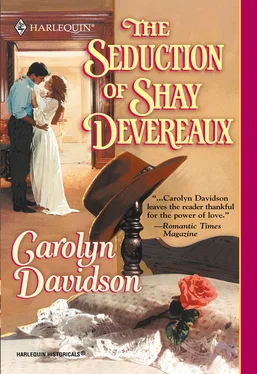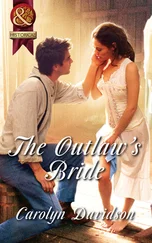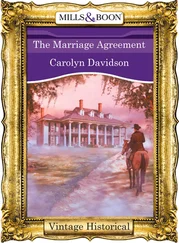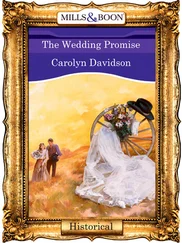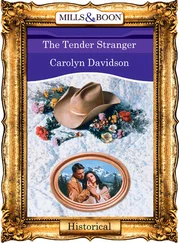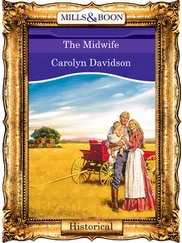Her laughter was bitter as she recalled her youthful optimism. For close to six years now, she’d struggled. Struggled against impossible odds, enough to scatter every lovely dream to the four winds. At first, in those early days, she’d been optimistic, vowing to put her shoulder to the wheel, as her father used to say, and make a success of the plantation. And then the awful letter had come, and that day she’d stiffened her spine and vowed to give herself four more years to make a profit and gain a foothold on that elusive thing called success.
No more. She’d run out of time. Jenny Pennington lifted a hand to her brow, her gaze seeking the horizon. The field before her was the brilliant green of early hay, ready for reaping. Three men worked in tandem, swinging scythes in a rhythm that seemed to depend on the song they sang, a mournful tune that tugged at her emotions.
She turned away, her strides long as she headed for the wagon, anxious to flee from the harmony, that minor key that spoke of betrayal and sorrow. Her skirt caught on the wagon wheel and she muttered a word beneath her breath as she tugged it free.
“That’s one of those words you told me not to say, Mama.” From behind the wagon seat, the voice of her son admonished her.
“You’ll get soap on your tongue if you try it,” she warned him. “I won’t have you using vile language, Marshall Pennington.”
“Yes, ma’am,” he murmured agreeably.
Jenny picked up the reins and glanced over her shoulder. He was tall for a boy just a few months past his fifth birthday, and his grin met her gaze. “I won’t say it again, either,” she told the boy. The leathers cracked over the broad backs of her team and the wagon jolted into motion.
Behind her the sound faded, muffled by the trees surrounding her, carried by the breeze toward the east. “Are we gonna eat dinner pretty soon?” Marshall asked. On his knees now, he leaned against the back of the wagon seat, one hand clutching her shoulder.
“As soon as we get back to the house,” she told him. “Isabelle will have it ready for us.” And for that she could be grateful. Three men and one woman remained of the workers that had kept the Pennington Plantation in order.
No wonder the crops shrank every year, the house sat empty, but for the four rooms they used. The entire top floor was vacant, the furniture long since sold at auction, and for a pittance at that. Bare spots on the wallpaper bore silent witness to pieces of art she’d sacrificed for seed and wages. Using what little of value she had available, she’d bartered and bargained, until this spring, when her favorite portrait had purchased cotton seed for planting, and food staples enough to last through the summer.
She’d cried that night, sobbed into her pillow, stifling the sound so that Isabelle would not hear. For too long, she’d struggled. For too many days she’d worked in the fields. For too many nights she’d held Carl’s pillow against her barren body, yearning for the warmth of his embrace.
And for what? Her long years of work and sacrifice had earned her but a respite from the inevitable end. For whatever it was worth, Pennington Plantation would be sold. Once the crops were harvested this year, once the cotton was weighed and sold, the plantation house and the acres surrounding it would be put up for auction to the highest bidder.
I’m sorry, Carl. She’d whispered those words more times than she could count. And now, for the last time, she repeated them aloud. “I’m sorry, Carl.”
“Are you talkin’ to my papa?” Marshall asked in her ear.
A smile teased at Jenny’s lips. “You’ll think your mama is daft, sweetheart. And yes, I was talkin’ to your papa.”
“What are you sorry for, Mama?” The boy climbed over the wagon seat, teetering precariously atop the backboard until he gained his balance and plopped beside his mother.
“You wouldn’t understand,” she told him. “Matter of fact, I don’t understand it myself.” And wasn’t that the truth. It seemed that hard work should somehow be rewarded in this life, but thus far, she hadn’t found the end of her particular rainbow. Maybe her reward was to be in the rearing of this small boy, the best part of her inheritance.
The house loomed before them, windows gleaming in the sunlight. Isabelle was a great believer in cleanliness. Windows and floors got a weekly going-over, and one expense Jenny was not allowed to scrimp on was the purchase of vinegar for window washing and the preserving of pickles, and thick bars of soap for laundry and cleaning. Strange that her household should be run by the dictates of a former slave, Jenny thought. Former slave and best friend, she amended silently. Almost her only friend, actually. A woman alone was not welcomed in polite company, and a widow living hand-to-mouth was not often included on what few guest lists existed these days.
Marshall jumped from the wagon as she drew it to a halt near the house. “I’ll carry in the basket, Mama,” he said, running to the rear of the wagon bed.
Jenny climbed down quickly, lest Marshall should tug at the basket and send it flying to the ground. Always eager to help, he tended to rush headlong into things, and she was hard put sometimes to harness his energy. Today was no exception, and he danced impatiently as she rounded the back of the wagon.
“Hurry, Mama. Isabelle promised me a treat when we got back from takin’ dinner out to the men.” He reached for the handle and Jenny delivered it up to him, watching as he carried it to the house. “I’m here, Isabelle,” he called out. “Open the door for me.”
Jenny turned away, leading the mules to the barn, leaving Marshall in capable hands. She blinked in the shadows as the team halted just inside the wide doorway, and then she set to work unbuckling the harness. Sliding halters in place, she led the pair through the barn to the corral where she spent long minutes wiping them down. They gleamed in the sunlight, and she bent to examine their hooves, plucking a stray bit of stone from where it had lodged in one shoe.
“I don’t need you to go lame on me, Pretty Boy,” she murmured, rubbing at the bigger mule’s flank. He turned his head and nudged her shoulder. “I don’t have anything for you, sweetheart,” she told him, stepping to his head. “The carrots are about gone, and Isabelle wants what’s left for cooking.”
From behind her a horse nickered, announcing its arrival, and her team answered in unison. Jenny turned quickly, leaning back against the jack, looking up in surprise. Company was rare, and since the end of the war, what few men meandered by were not always kindly. She’d learned to carry a gun with her, or at least have one close at hand, but right now the nearest thing to a weapon was in the tack room.
A man sat astride a black horse, bending his head to move beneath the open doorway. His shirtsleeves were rolled up to his elbows, a large pistol was holstered against his thigh. To the left side of his saddle, just touching his hip, a scabbard held a long gun, probably a rifle, she thought. And yet he was relaxed in the saddle, both hands visible, fingers curved against the pommel of his saddle.
“Jenny Pennington?” he asked. His gaze was penetrating, his eyes shaded by the brim of his hat, and his voice deep, almost rasping. No trace of a drawl softened his words, and no smile curved those wide lips.
“Yes,” she answered curtly. “I’m Mrs. Pennington.” And if he wanted to take her mules, or the lone horse that grazed in the pasture, or rummage through the house for whatever booty he might find, she would forever curse her lack of caution today.
“Was your husband named Carl?” At her nod, he glanced behind him, through the barn, toward the house. As if he were determined to be in the right place, he mentioned the facts that made up the boundaries of her life. “And is the boy yours?”
Читать дальше
